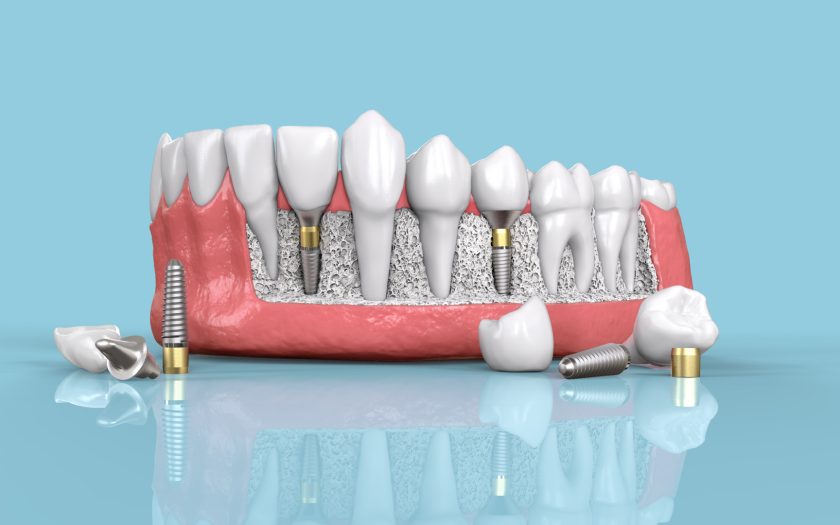Unfortunately, a person has only two sets of teeth in his lifetime – milk teeth and permanent teeth. If a few dozen years ago the loss of one or more permanent teeth was considered an irreparable loss, but now the situation is different. Implants appeared to help compensate this loss. Thanks to them, a person will regain a beautiful smile, as well as the ability to chew food completely.
About the implantation procedure in detail
Implantation of teeth has already been doing for quite a long period of time. It has supporters and opponents. As for the last ones, they believe that implants will never be able to replace teeth and will only lead to bigger problems. This is a wrong opinion, because their installation has been practiced for a long time and thanks to this they were able to prove themselves from the best side. The implantation procedure is difficult and it is performed by two specialists – a dental surgeon and a dentist. The task of the surgeon is to install a pin in the bone. Later, when bone’s tissue is formed around it, the abutment is placed by the dentist, which is, in fact, a total copy of the tooth. The implantation procedure takes about 2-3 weeks.
When dental implantation cannot be avoided
Everyone is free to decide by himself whether he needs an implant in case of tooth loss. But there are situations when it is better to resort to implantation than to refuse it. Here is a list of only the main ones:
- increased of abrading of healthy teeth;
- discrepancy of the lower or upper tooth row;
- occurrence of a speech defect;
- change in the patient’s appearance. Wrinkles appear, and the corners of the lips can go down;
- deterioration of smile aesthetic (in case of loss the front teeth).
How much does it cost to make and install an implant
The cost is defined in each case individually and for this you need to make an appointment.
Pros and cons of the implantation procedure
Implantation has the following advantages:
- allows you to get a complete imitation of a tooth, both externally and functionally;
- the procedure allows to restore not only one tooth, but almost any quantity of them;
- absence of contraindications for food consumption. You can eat even solid food;
- the implant takes root in 95% of cases;
- it is impossible to distinguish an implant from a real tooth by external parameters.
The minus is possible complications, as well as you can feel some pain. Of course, implants rarely take root, but this point should be taken into account. As for the price, recently it was extremely high. On these days, prices are very different, and material makers are looking for more affordable options.
And remember, in order to avoid the need for dental interventions, you need to brush your teeth 2 times a day (for children with a special paste like Cheerio Gel (Sodium Monofluorophosphate)) and treat your teeth in time as soon as a toothache appears – take painkillers (for example, Panadol) and visit a doctor.

